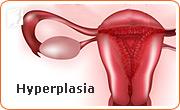Irregular periods are a common symptom of the menopause. Irregular periods are characterized by any menstrual activity that differs from your usual cycle. Irregularities can occur in the frequency of your period, the duration, the flow, and the severity of accompanying symptoms.

A woman has reached menopause after she has gone 12 consecutive months without a period. Until this point, all menstrual bleeding can be considered as a period, and usually it's no cause for concern.
However. If you experience bleeding during postmenopause, consult your doctor as this could be a symptom of another health condition.
Causes of Bleeding during Postmenopause
These are the possible causes of postmenopausal bleeding.
Vaginal dryness

Chronic vaginal dryness can result in atrophic vaginitis, which is a common symptom of menopause that often continues into the post-menopause stage. Atrophic vaginitis can lead to the bleeding of the vaginal walls, particularly during intercourse, and is a common cause for postmenopausal vaginal bleeding.
Weight loss
Dramatic weight loss, at any stage in a woman's life, can affect her periods. Extreme weight loss during postmenopause can cause unexpected bleeding, because it provokes an abrupt release of estrone, a type of estrogen that is stored in fat deposits.
Hormone replacement therapy
Hormone replacement therapy (HRT) is a treatment in which artificial hormones are released into the body to combat the effects of menopause, and to regulate hormonal imbalance. There are different kinds of HRT, and these treatments can have different effects on menopausal and postmenopausal bleeding. If your bleeding differs from what is be normal for you, talk to your doctor.
Abnormal uterine cells

Postmenopausal bleeding could be a sign of abnormal uterine cells. The development of abnormal cells in the uterus could be a hyperplasia - this is a minor and mostly benign abnormality, but it can be sometimes be malignant and should be examined. There are treatments available for uterine abnormalities as long as they are identified early enough. Bleeding during postmenopause should therefore be examined immediately by a doctor.
Usually, irregular periods are a normal part of the perimenopause phase. However, if bleeding occurs after menopause and in postmenopause, it is best to seek the advice of a medical professional.
Sources
- Hutchinson, Susan M.D. "The Stages of a Woman's Life: Menstruation, Pregnancy, Nursing, Perimenopause, Menopause". November 2007.
- Love, Susan M.D. Menopause and Hormone Book. New York: Three Rivers Press, 2003.
- BMJ Group. "Menopause: What is it?" Patient Leaflet. 2007



